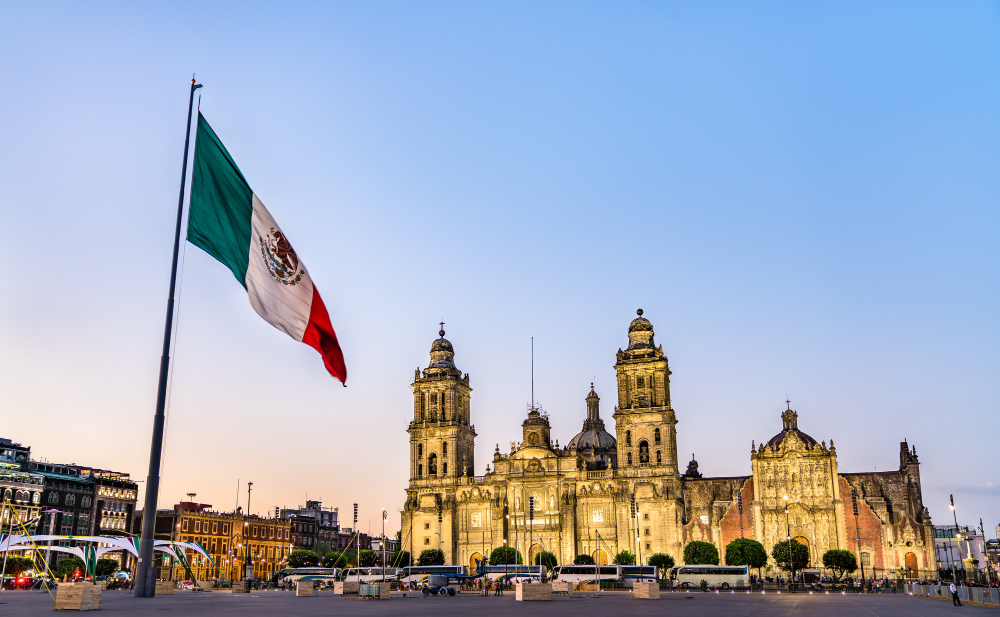
Mexico has become one of the most popular destinations in the world for medical tourism, especially for travelers from the United States, Canada, and Latin America. Its close proximity to North America, affordable healthcare costs, and growing network of modern hospitals make it a natural choice for those seeking high-quality medical treatments without the long wait times or financial burdens often found in their home countries.
From bustling border cities like Tijuana and Mexicali to cultural hubs such as Guadalajara, Monterrey, and Mexico City, the country offers top-tier care across a wide spectrum of specialties. Mexico seamlessly blends advanced medical capabilities with warm hospitality, delivering not just treatment, but a healing experience rooted in both tradition and innovation.
Mexico is internationally known for its excellence in dental care, bariatric surgery, cosmetic and plastic surgery, fertility treatments, and orthopedic procedures. Patients frequently travel for dental implants, gastric sleeve surgery, rhinoplasty, IVF, hip/knee replacements, and even advanced oncology care. Many of these procedures cost up to 60–70% less than in the U.S., with comparable outcomes and shorter wait times.
In recent years, Mexico has also emerged as a destination for stem cell therapy, regenerative medicine, and integrative cancer treatments. The country's top-tier private hospitals are staffed by board-certified doctors, many of whom trained in the U.S., Canada, or Europe. These facilities are often equipped with cutting-edge medical technology, including robotic surgery systems and state-of-the-art diagnostic labs.
The affordability does not come at the expense of quality—Mexico’s medical institutions are known for personalized patient care, adherence to international standards, and a high level of cultural competence.
Mexico’s geographic accessibility is a major advantage. Patients from North America can fly or drive into cities along the U.S.–Mexico border or take direct international flights to key medical hubs like Mexico City, Guadalajara, and Cancun. Popular medical tourism border crossings like Tijuana and Juarez even offer medical lanes and fast-track options for patients.
Visa requirements are minimal for many travelers, especially from the U.S., Canada, and Europe. Most patients stay in hotels affiliated with hospitals or recovery centers designed to support post-procedure healing.
Language barriers are minimal in major private hospitals, where English-speaking staff, translators, and patient coordinators are common. Many hospitals offer medical tourism packages that include airport pickup, hotel accommodation, and post-op nursing care. Mexico’s well-established hospitality industry ensures a comforting and seamless journey from arrival to recovery.
Moreover, patients will find culturally sensitive care options, such as private recovery rooms, family-inclusive facilities, and dietary accommodations like vegetarian or halal meals.
Mexico’s private healthcare sector is regulated by COFEPRIS (Federal Commission for the Protection against Sanitary Risk), the Mexican counterpart to the U.S. FDA, which enforces standards for hospitals, medications, and equipment. Several private hospitals are accredited by international bodies, including the Joint Commission International (JCI) and other regional certifiers.
Medical travelers are protected by comprehensive patient rights laws and malpractice laws, although due diligence is encouraged when selecting facilities. Many hospitals have legal departments to handle international inquiries and offer transparency in billing, consent, and procedures.
Post-treatment care is emphasized through follow-up visits, remote consultations, and partnerships with local recovery clinics. For complex or chronic conditions, many hospitals provide long-term treatment coordination with foreign physicians or offer concierge services for future visits.
Mexico is a compelling choice for medical tourists seeking affordable, high-quality healthcare in a culturally familiar and geographically convenient setting. With its broad range of specialties, experienced physicians, and patient-friendly infrastructure, it continues to draw thousands of patients each year who return not only for the treatment but for the holistic care experience. Whether for dental work, cosmetic enhancement, fertility treatments, or life-saving surgeries, Mexico offers a reliable, safe, and welcoming medical tourism journey.
1. Why is Mexico popular for medical tourism?
Mexico offers high-quality healthcare at affordable prices close to the U.S. and Canada.
2. What treatments are most common in Mexico?
Popular procedures include dental care, cosmetic surgery, bariatric surgery, IVF, and orthopedics.
3. Are Mexican doctors qualified?
Yes, many are internationally trained and board-certified.
4. Is it safe to get medical treatment in Mexico?
Yes, especially in private hospitals regulated by COFEPRIS and often internationally accredited.
5. Do hospitals in Mexico speak English?
Most private hospitals have English-speaking doctors and staff.
6. How much can I save on procedures?
You can save up to 60–70% compared to U.S. or Canadian prices.
7. Are travel arrangements easy for patients?
Yes, direct flights and border access make travel simple, especially from the U.S.
8. Do I need a visa to visit Mexico for treatment?
Many nationalities, including U.S. and Canadian citizens, don’t need a visa or can get one easily.
9. What services are included in medical packages?
Packages often include airport pickup, hotel stays, surgery, and post-op care.
10. Can I get follow-up care after going home?
Yes, most hospitals offer virtual follow-up and coordinate with your local doctor.
11. Is the healthcare regulated?
Yes, by COFEPRIS and other national bodies ensuring safety and quality.
12. Can I recover in a relaxing environment?
Yes, many hospitals partner with recovery centers or resorts.
13. Do hospitals respect cultural and religious needs?
Yes, with options like halal food, private rooms, and gender-specific staff.
14. Is dental care really that good in Mexico?
Yes, dental tourism is a major draw due to skilled dentists and low costs.
15. What cities in Mexico are best for medical tourism?
Tijuana, Mexico City, Cancun, Guadalajara, and Monterrey are top destinations.